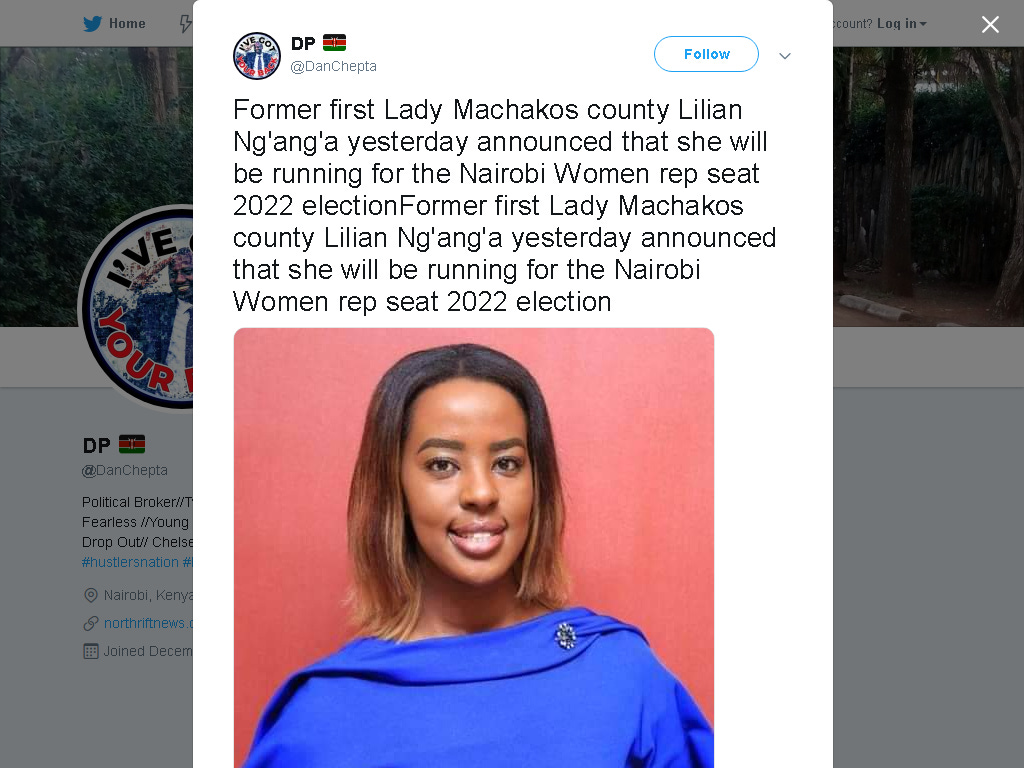THE DEEP DIVE 14TH EDITION
We’re discussing the end of Kenya’s curfew restrictions, first-time voters and fact-checking parody accounts
October 20th is, at least by official accounts, supposed to be a momentous occasion, where Kenyan heroines and heroes are celebrated by their countrymen and women, and honoured by their government. This year’s Mashujaa Day celebrations went by the formbook in this respect. Hundreds of Kenyans received national honours, as President Uhuru Kenyatta gave what was his final Mashujaa day speech as President of Kenya. Celebrations were most fervent after his announcement of the lifting of nationwide curfew restrictions that have been in place since March 27th, 2020. The news was well-received by millions of Kenyans who have endured a punishing year, made even more difficult by curfew restrictions. This Thursday, October 28th, we’ll be discussing the impact of the curfew on Kenyans, as they look forward to building some positive momentum towards the end of 2021.
In our continuing election series, #Disclosure, freeelance journalist and writer Samira Sawlani reflects on her first experience of electoral politics from a continent away, and asks a question at the core of any election; what are we really voting for when we cast our ballots?
One more thing…
Thank you for sharing your feedback about our newsletter and other products. We heard you! A majority of you have asked that we host our “Join The Newsroom” Twitter space conversation twice a month as opposed to once every month. So beginning this Thursday, you’ll be hearing from us every two weeks!
Dive in!
The Wasp in the Mind: The Mental Health of a Police Task Force
Part of what we do at Africa Uncensored is training & mentoring the next generation of investigative journalists. Here's a story from Calvin Magawe from our most recent Investigate 101 cohort, exploring the mental health problems faced by officers in Kenya’s Police service
Principles Over Personalities: What determines how or even if we vote?
Kenya is on the cusp of a most consequential election, one in which over 65% of the electorate will be 35 years of age and below. A significant portion of these Kenyans will be voting for the first time. So what should one look out for when casting their first vote? Freelance journalist Samira Sawlani looks (not too far) back to her first vivid political experience and asks the question, is it principles over personalities? Read Samira's article here!
Join the Newsroom| Edition Seven
We invite you to join our newsroom space this Thursday, October 28th. We’ll be discussing the impact of the curfew on Kenyans, as they look forward to building some positive momentum towards the end of 2021. Here are some of the things to think about as we prepare for the discussion: Why it took so long? Were Kenya’s curfew restrictions legally enforced? Why so many unnecessary deaths related to curfew enforcement? Is Kenya out of the woods?
Looking forward to hearing your thoughts!
The Invisible line
When Kenya’s now rescinded daily curfew was enforced beginning March 27th 2020, Kenyans witnessed police brutality at unprecedented levels. The curfew may have been targeted at saving lives but from the start, its enforcement exposed a far more stubborn problem in Kenya - police brutality.
This problem also presents a class divide that Kenyans know exists, but don't often speak about. There is a thread that joins these deaths and the violence that swept ashore with COVID-19 stretching back to before Kenya's independence. In this edition, we revisit The Invisible Line documentary that sought to uncover the extent of police brutality in Kenya and the stories of the victims affected.
Parody and satire become a slippery slope in an era rife with misinformation, inadvertently spreading fake news.
In contrast to disinformation, which is sharing false information particularly purposed to cause harm, misinformation is bred in oblivion. It is by definition, false information shared without intending to cause harm. This can entail parody, which fact-checkers found is not always consumed just for laughs. This is especially when information is lifted from parody websites or accounts, and republished on other platforms that conveniently leave out the source of their information.
For instance, Piga Firimbi debunked a claim that the Central Bank of Kenya announced it would be adopting Bitcoin as a reserve currency here. The claim that was initially published on the Posta Mate website which identifies as ‘The home of satire and sarcasm’ was republished by numerous crypto-related websites, some run all the way in Nigeria. The republications, of course, posed as independent sources, with a very exclusive scoop.
Recently, a parody Twitter account which rightfully denounced itself on its bio published the claim that Former Machakos First Lady Lillian Nga'ng'a would apparently be vying for the Nairobi Women Representative seat. This was fact-checked here. With the intention to quip its audience, this information was nonetheless published independently as news.
Editorial Director: John-Allan Namu
Assignment Editor: Sam Munia
Social Media Manager: Cecilia Ashioya
Contributors: Samira Sawlani, Linda Ngari and Kevin Mbugua
Before you go…
Thank you for your support in reading and sharing our content! We work very hard on it and continue to go to great lengths to deliver independent hard-access journalism and insightful content. To support the work done by our journalists, you can send us a contribution! Click on this link and follow the prompts.







